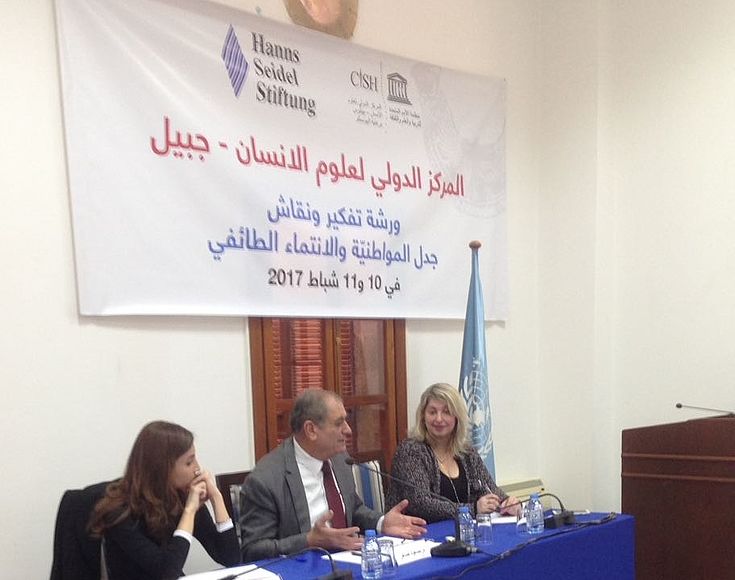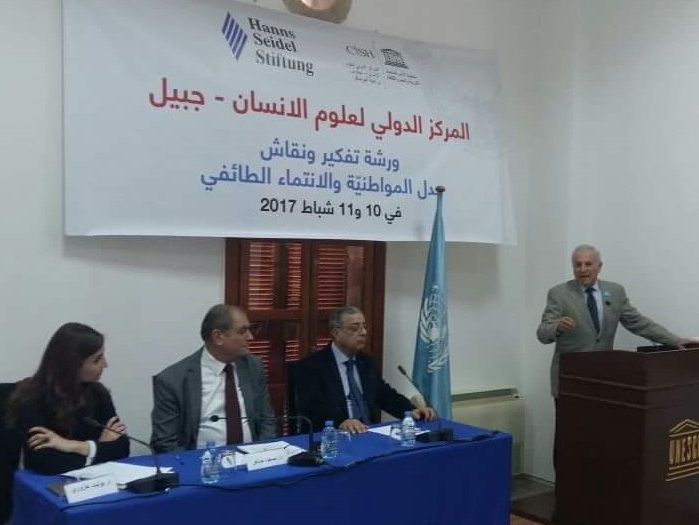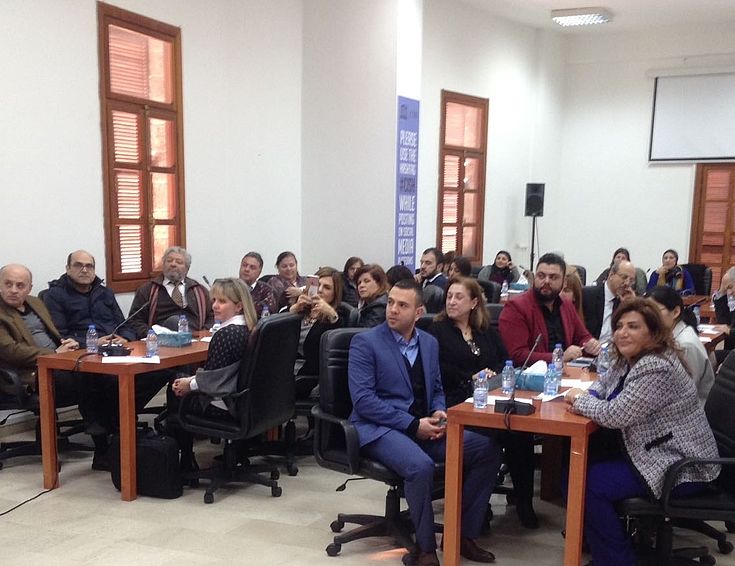What's happening at HSS?
Symposium on 'The Lebanese National Pact and the Rights of Citizens', February 10 - 11, 2017 in Byblos / Lebanon
Lebanon’s political system and security infrastructure have been deeply affected by spillover from the Syrian civil war, as nearly one quarter of Lebanon’s population is made up of refugees. The country also suffered a leadership gap for two and a half years, until Michel Aoun was elected as president in October 2016. On the security front, the latent sectarian divisions in the country have been exacerbated as the self-proclaimed Islamic State battles with Hisbollah and other Shia groups in Lebanon. Hezbollah is also deeply involved in the neighboring Syrian civil war, supporting the regime of Syrian President Bashar al-Assad.
The main goals from this workshop, which was conducted in cooperation with the "Centre International des Sciences de l'Homme - CISH', were to discuss the following issues:
- the persistence of Sectarian Conflict in Lebanon: the sectarian hostilities between and among Christians, Sunni Muslims, Shi’a Muslims, and Druze that have characterized Lebanese religious, social, and political life since the country’s civil war (1975-1990)
- the Lebanese constitution of 1926, as amended and still in force
- the Taif Agreement, the treaty negotiated in Ta'if, Saudi Arabia, by the surviving members of Lebanon's 1972 parliament
- the Doha Agreement from 2008
In May 23, 1926, only a few years after Lebanon came into existence as a separate political entity under French mandate following the defeat of the Ottoman Empire in World War I, the French High Commissioner in Beirut promulgated the first Constitution adopted by the Lebanese Representative Council. The main feature of the Constitution is the representation given to the various religious communities in public employment, the formation of government, and the selection of the legislature. The Constitution guarantees basic individual rights and freedoms and provides for a parliamentary form of government.
Subsequent constitutional amendments and agreements, such as the Taef and Doha agreements, reinforced and expanded the role of religious affiliation in the political structure of government. Some of these amendments and agreements were concluded outside the normal constitutional process and have not been fully integrated into the written text of the Constitution.
The Taif agreement, was ratified on 5 November 1989, covered political reform, the ending of the Lebanese Civil War, the establishment of special relations between Lebanon and Syria, and a framework for the beginning of complete Syrian withdrawal from Lebanon. The agreement formed the principle of "mutual coexistence” between Lebanon's different sects and their proper political representation as the main objective of post-civil war parliamentary electoral laws. And it restructured the National Pact political system in Lebanon by transferring some of the power away from the Maronite Christian community, which had been given a privileged status in Lebanon under the period of French rule. Prior to Taif, the Sunni Muslim Prime Minister was appointed by and responsible to the Maronite President. After Taif the Prime Minister was responsible to the legislature, as in a traditional parliamentary system. Therefore, the agreement changed the power-sharing formula that had favored the Christians to a 50:50 ratio and enhanced the powers of the Sunni Prime Minister over those of the Christian president.
In 2008 following a military operation undertaken by Hizbullah, an agreement among the main political parties was concluded in Doha. This agreement reflected a de facto acknowledgement that no major decisions by the Lebanese government can be made without the consent of all major religious communities, no matter how large the majority supporting the government may be.
During the workshop aspects like 'the Ta'if agreement in the balance of criticism: backgrounds, targets, negative, positive, and outstanding results' or 'National Accountability - What has not been implemented to and remaining silent about it in Ta’if Agreement' were openly discussed.
The participants realized that the particular distribution of power faced challenges in subsequent years because of changes in the internal and regional balance of forces. Various internal tensions inherent to the Lebanese system and multiple regional developments contributed to the breakdown of governmental authority and the outbreak of many civil strife.
Furthermore theoretical models of negotiation were discussed: the static and the developmental. The first model developed out of the literature of game theory and the structural approach. It is mainly concerned with formal bargaining between conflicting parties, in which each party attempts to maximize its gains and minimize its losses. The developmental model considers the process of negotiation as part of a relationship between two parties. Such a relationship starts before their formal bargaining and continues after they reach agreement. The emphasis of the latter model is on relationships and dynamic interactions.
Students of Politics Sciences and Law from various Universities, Professors’ of Law, Lawyers’, Senior Staff of Ministry of Justice, Judge of Court Bodies’ Deputies from various Ministries, Politicians, political activists and members political parties took part in the workshop.



